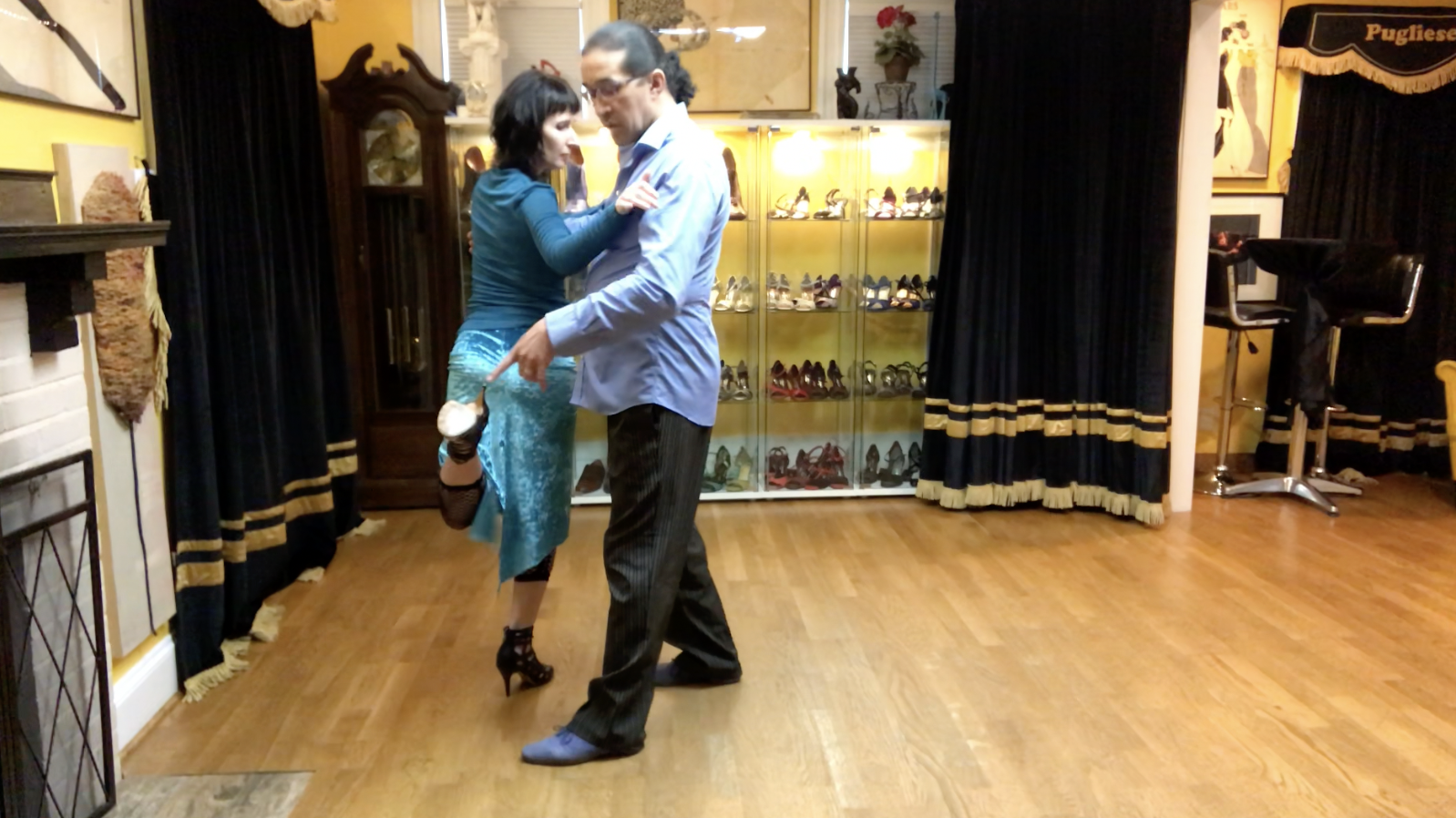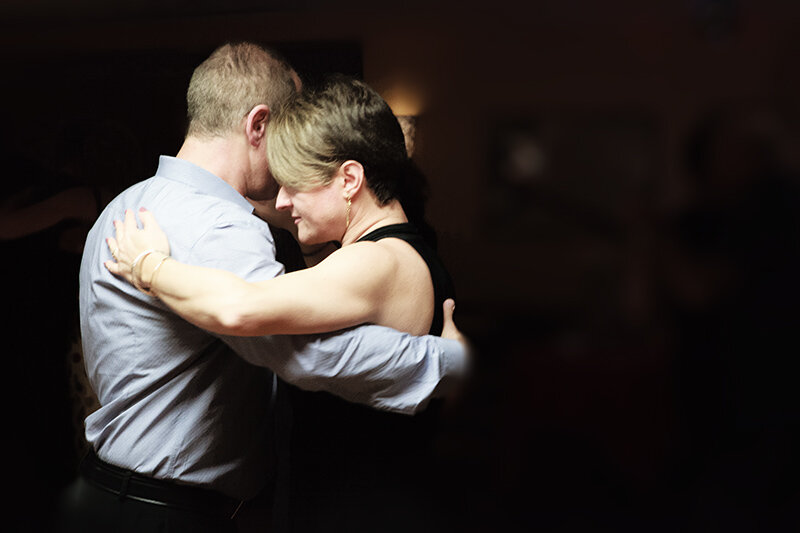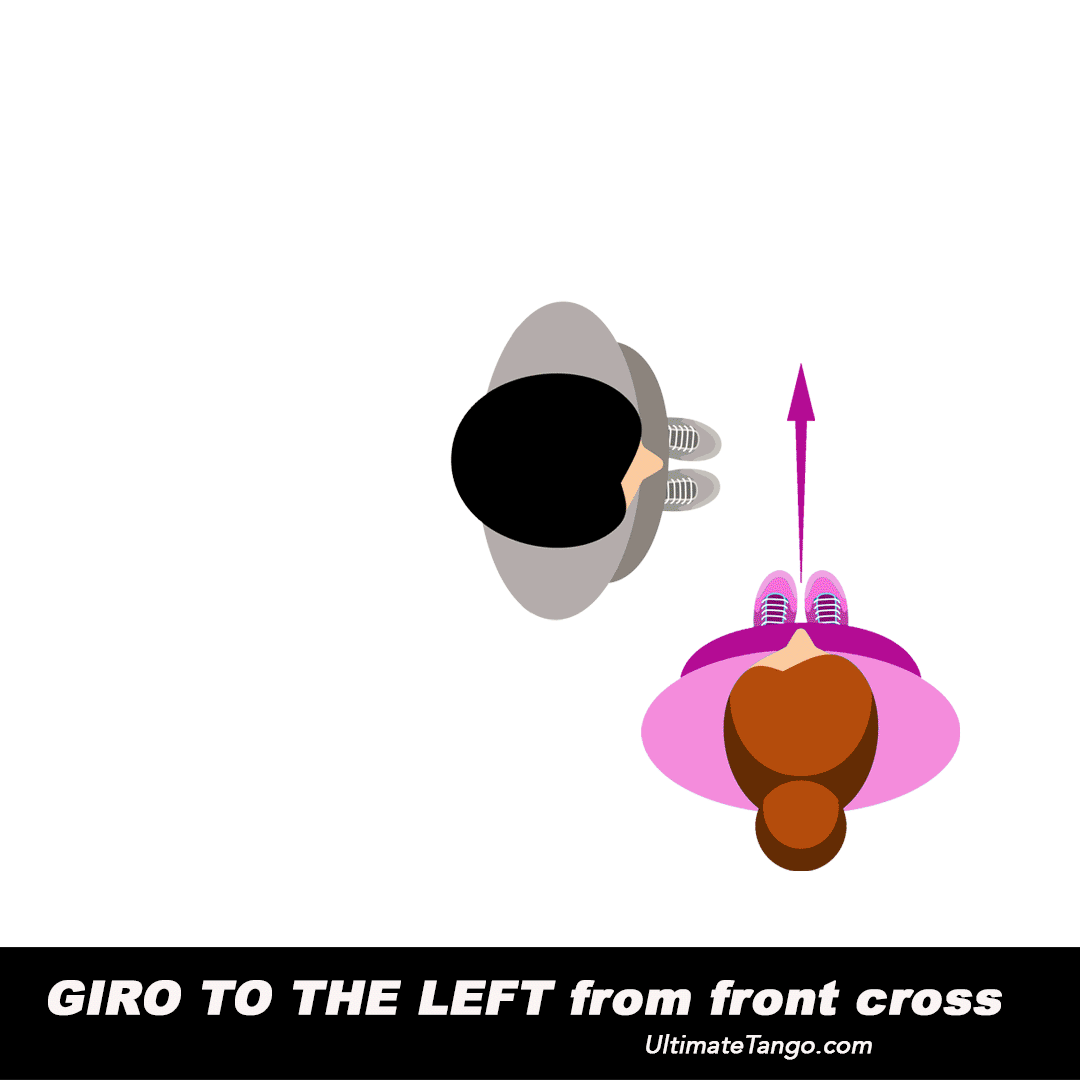In the sphere of Argentine tango, Newton’s Third Law can very much apply to the interactions shared by both leaders and followers, wherein each one gives and receives “force.” However, this term should not be mistaken as having the intention to coerce or intimidate. Rather, the concept of “force” in Argentine tango simply translates to the leader’s suggestion or proposal to execute a move and a follower’s response in favor of or in opposition to that suggestion. This dynamic, while applicable to many steps and counterpositions, may be best exemplified by the boleo.
Boleo is a beautiful figure, BUT… Remember a couple of things - Tango is created by two - Leader and Follower. Follower shall use the brain and know better NOT TO execute the high boleo, even if lead, in the crowded Milongas. The leader shall use his smarts to NOT TO lead it, or lead it in a way that does not pose the danger to other couples, or at least have an understanding of WHY the Follower refused the boleo
Read MoreThe team (in the case of Argentine Tango - the couple) needs to fully understand the overarching strategy. WHERE are we going and WHAT are we trying to achieve. Then the HOW becomes the tactic, a small step that is easy to execute once understood and agreed upon the common goal.
Read MoreLooking at the translation, “Por Una Cabeza” is a song that compares one’s addiction to horse racing to an addiction to women. It talks about how the man, from whom the song’s perspective is based, is constantly beleaguered by his enchantment of different women whose passing glances and momentary displays of supposed affection are enough to make him swoon and “gamble” away his love.
Read MoreFor the tango, age is merely a number that does not, in any way, restrict anyone from participating in this dance. If anything, the nature of Argentine tango can evoke feelings of liberation for those who may feel confined to certain stereotypes and perceptions like seniors.
This is because Argentine tango, in principle, has never been about the technicality of movement or the memorization of patterns or steps. By its nature and conception, Argentine tango is a dance that encourages improvisation, operating more on the connection between both dancers and their willingness to exchange energies while on the dance floor.
Read MoreThe prevalence of high heels in fashion, as well as in intimate dances like the Argentine tango, has often been associated with female sexuality.
Read MoreThis popular notion is largely based on the theory that this specific type of footwear holds a measure of transformative power that could affect a woman’s level of attractiveness, much in the same way dancing the Argentine tango could evoke feelings of being desirable.
The togetherness is what’s the most visible in a great couple. It’s not that we become one. But we are both working towards the same goal creating the perception of oneness. We can never become one, as we are two independent people.
But the constant support, never-ending compensations for each other tiny mistakes - makes the dance glorious. You made a mistake together and you feel glorious because often the mistake leads to the discovery of a new path, new way, new purpose.
Read MoreAlthough it is common knowledge that dancing has mood-enhancing benefits, increases serotonin and cognitive functions, and reduces stress levels – this is particularly true for the combination of Tango music and partnered dancing. It delicately reveals personal emotional and physical challenges while cultivating intense awareness that has a therapeutic effect and improves people’s emotional state (Bongard & Kreutz, 2009).
Read MoreA good tango is like a work of art. Something to be marveled at, admired, respected, and enriched by certain traditions embedded in it.
Argentine Tango is an art that anyone can master, with a little practice and coordination. Whether you want to impress a partner, keep fit and dance at the same time, or just explore a fun and rewarding hobby, the tango could well be for you. Dancing the tango can even become a spiritual experience, as we explored recently in our article How the Argentine Tango Connects to Spirituality.
Read MoreWhen you finally brave into the world of online courses you may discover that they actually work pretty well. Especially if you have a partner ready and willing or if you yourself love to work toward continuous improvement.
There is a scary moment of starting where you have to navigate through the unknown labyrinth of registration, choosing the course, and then figuring out what to click and how to access the content.
Read MoreTo think that the Argentine Tango has a spiritual implication might seem strange for those not in the know. However, for those in the know, there is indeed an immediately clear connection between the two. With an open mind, it is really quite easy to see the relationship and learn spiritually from the Argentine Tango.
Read MoreHave you ever joked in a semi-serious manner that Tango is like a church, a religion, a cult? We hear it all the time - most often in reference to the fact that most of our classes and Milonga Ideal are held on Sunday. Every week you attend your Ultimate Tango ‘church’. Keep reading…
Read MoreSince you continuously hear your Argentine Tango teacher mention the words L- shaped, oscillate, out of the circle, and 90-degree angle, you’ll know that logic, symmetry, permutations, and topology are also present both in conscious and in an intuitive way when dancing Tango.
Read MoreDancing both roles is actually very beneficial. As a leader who also follows, you are able to judge better your lead. Since you know how it feels when the leader selfishly executes the steps but does not take into consideration the whole couple. As a Follower who also leads, by familiarizing yourself with the structure of the dance, secrets of the trade, the meaning of torsions, various delays, mechanics, and simple necessities that make various steps work - you become better at reading the lead since now is two-way communication. By understanding - you become more sensitive. As they say - if you do not know what you are looking for - you cannot find it.
Read MoreMarch is Women’s History Month – a time to reflect on truly inspirational women throughout our history, recognize the progress we have made, and acknowledge whole-heartedly that 2021 is set to be the “year of female leadership”. In her 80s, Nieves remains strong-willed and passionate, with a bright smile, and styled red, short hair. Throughout her life, she always stood out as the person in the room that you really wanted to meet – a tenacious woman who created significant change in her field. Without her, Argentina could have lost one of its greatest exports – a huge part of the country’s cultural impact and image worldwide.
Read MoreAnalyzing the ochos from the perspective of two steps going in the opposite direction, and relationship to the partner, we can observe another interesting aspect. in reference to the partner, one of the crosses travels to the left and the second cross travels to the right. if we continue with our ochos, we’ll continue doing one of the steps traveling to the left in the relationship to the partner, and one step traveling to the right in the relationship to the partner.
Read MoreTango is a dance of giving and taking. It is not just about the leader. It is also not just about the follower. Tango encourages partnership and forging connections through dance. He brings out her femininity while she brings out his masculinity. The dance serves to express both the masculine and feminine arts found in every person.
Read MoreSocial inequality, the injustice that feminism is working to change, has led to many negative female stereotypes and clichés. One way to combat these inaccurate and limiting ideals of femininity is to reclaim them through something powerful, beautiful, and expressive — like the Argentine Tango.
Read MoreTango’s nature is reverent, subdued, and structured. It allows dancers to focus on internalizing one’s experience of the music, engaging in the meditation of movement, and concentrating on their partnership rather than vying for attention. This sharply contrasts with Salsa, which is characterized by periods of solo dancing and moments where partners can show off their footwork - it's an extrovert’s dance - loud and exciting, and demanding personal expression.
Read More



















